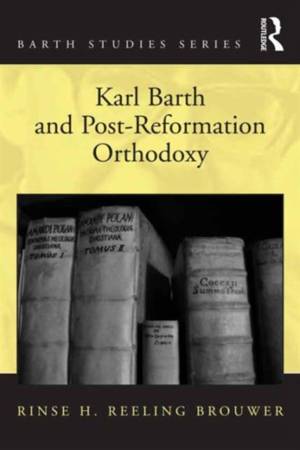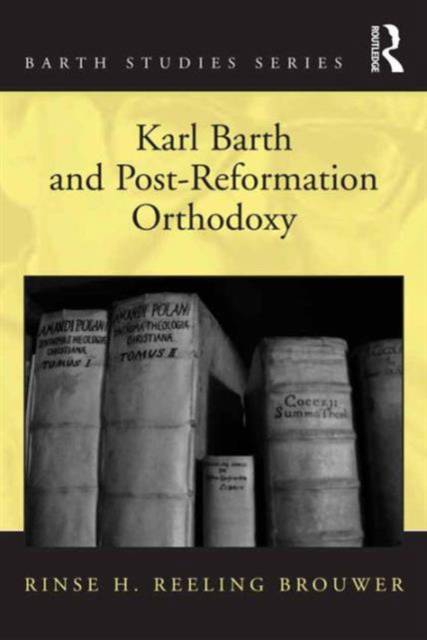
Je cadeautjes zeker op tijd in huis hebben voor de feestdagen? Kom langs in onze winkels en vind het perfecte geschenk!
- Afhalen na 1 uur in een winkel met voorraad
- Gratis thuislevering in België vanaf € 30
- Ruim aanbod met 7 miljoen producten
Je cadeautjes zeker op tijd in huis hebben voor de feestdagen? Kom langs in onze winkels en vind het perfecte geschenk!
- Afhalen na 1 uur in een winkel met voorraad
- Gratis thuislevering in België vanaf € 30
- Ruim aanbod met 7 miljoen producten
Zoeken
Omschrijving
Throughout his magnum opus, Church Dogmatics, Karl Barth converses with the great theologians of post-reformation orthodoxy, quoting from works in his private collection. When Barth became Honorary Professor of Reformed Theology at the University of Göttingen in 1921, his knowledge of the Reformed tradition was practically non-existent; he quickly amassed his collection of ancient copies in order to acquire a thorough knowledge of orthodoxy. In Karl Barth and Post-Reformation Orthodoxy, Rinse H. Reeling Brouwer identifies and discusses the sources of Barth's conversations and analyses Barth's use and (mis)understandings of them. Each chapter focuses on one of the topics in Christian Dogmatics, with the last chapter exploring the way in which Barth's role as a reader of the 19th-century writer of a textbook on Reformed Dogmatics Heinrich Heppe influenced the ultimate shaping of Church Dogmatics. Reeling Brouwer offers a major contribution to Barth scholarship and an important resource for theologians as well as historians focusing on the post-reformation protestant theology.
Specificaties
Betrokkenen
- Auteur(s):
- Uitgeverij:
Inhoud
- Aantal bladzijden:
- 284
- Taal:
- Engels
- Reeks:
Eigenschappen
- Productcode (EAN):
- 9781472448354
- Verschijningsdatum:
- 28/05/2015
- Uitvoering:
- Hardcover
- Formaat:
- Genaaid
- Afmetingen:
- 156 mm x 234 mm
- Gewicht:
- 576 g

Alleen bij Standaard Boekhandel
+ 580 punten op je klantenkaart van Standaard Boekhandel
Beoordelingen
We publiceren alleen reviews die voldoen aan de voorwaarden voor reviews. Bekijk onze voorwaarden voor reviews.









